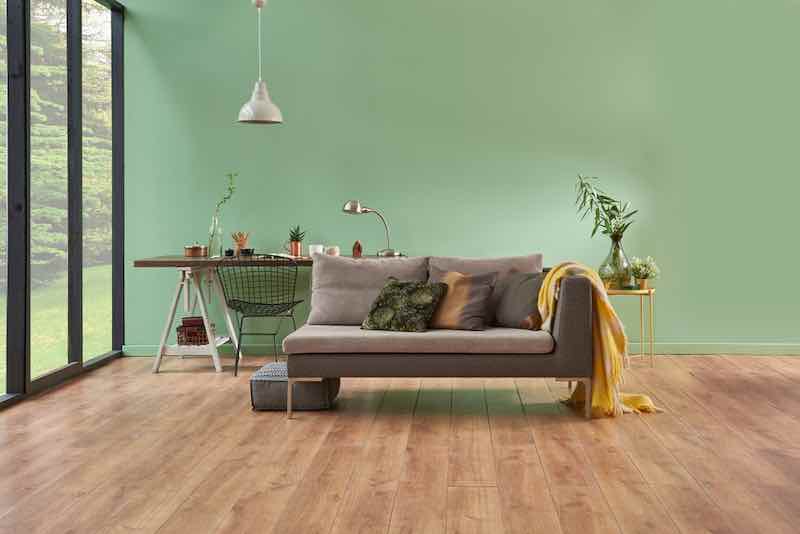Seafoam Green Interior Paint: Dive into Tranquility
Is your living room screaming for a makeover? Tired of beige? Yearning for something…fresher? Seafoam green paint might just be the answer to your interior design prayers. This delicate, airy hue is making waves in the design world, and it's easy to see why. It's more interesting than plain white, yet subtle enough not to overwhelm a space. Think of it as a cool breeze on a hot summer day – for your walls.
Seafoam green, a soft blend of green, blue, and a touch of grey, evokes the tranquil beauty of the ocean. It's a versatile shade that can create a range of moods, from breezy and beachy to sophisticated and serene. But where did this captivating color come from, and how can you best incorporate it into your home? Let's dive in.
The precise origin of seafoam green as a named paint color is a bit murky. While the term "seafoam" itself refers to the frothy foam created by the agitation of seawater, its use in describing a color likely emerged in the mid-20th century, coinciding with the rise of pastel shades in interior design. Its popularity has ebbed and flowed over the decades, but it's currently enjoying a resurgence, thanks to a renewed interest in vintage aesthetics and the ever-present desire for calming, nature-inspired spaces. A main issue with seafoam green, like other lighter shades, can be its susceptibility to showing imperfections on the wall surface. Proper preparation and priming are crucial for achieving a flawless finish.
Seafoam green paint isn't just one singular shade. It encompasses a spectrum of variations, from pale, almost-white tints to richer, more saturated tones. Think of it as a family of colors, all sharing the same calming essence. This allows for a great degree of flexibility when choosing the perfect seafoam green for your project. A lighter shade of seafoam green paint might be perfect for a bedroom, creating a peaceful atmosphere conducive to relaxation, while a deeper hue could add a touch of drama to a dining room. It's all about finding the right balance for your space and personal style.
Choosing the right shade of seafoam green involves considering the lighting in the room. Natural light can dramatically affect how a color appears. Test your chosen shade in different lighting conditions throughout the day to ensure you're happy with the result. Don't rely solely on paint chips – apply a sample patch to your wall to get a true sense of the color in your space.
Three key benefits of seafoam green paint are its versatility, its calming effect, and its ability to brighten a space. Its versatility allows it to complement a wide range of decor styles, from coastal and cottage to mid-century modern and even contemporary. The calming effect of the color creates a serene and relaxing environment, particularly beneficial in bedrooms and bathrooms. Finally, seafoam green's light and airy nature can make a room feel brighter and more spacious, especially in rooms with limited natural light.
To create a harmonious palette with seafoam green, consider pairing it with white trim and natural wood accents. For a bolder look, try incorporating pops of coral, yellow, or navy blue. Accessorize with natural textures like linen and jute to enhance the coastal vibe.
Advantages and Disadvantages of Seafoam Green Interior Paint
| Advantages | Disadvantages |
|---|---|
| Calming and Relaxing | Can feel cold in some lighting |
| Versatile and adaptable to different styles | May require multiple coats for even coverage |
| Brightens up a space | Might clash with certain color palettes |
One best practice when using seafoam green is to consider the existing furniture and decor in the room. Ensure that the color complements, rather than clashes with, your existing pieces. Another best practice is to test the color in different lighting conditions. A third best practice is to use high-quality paint and primer for the best results. A fourth best practice is to prepare the walls properly before painting, ensuring they are clean and smooth. Finally, a fifth best practice is to use painter's tape to create clean lines and prevent accidental spills onto trim or adjacent walls.
Frequently Asked Questions: What undertones does seafoam green have? What colors go well with seafoam green? Is seafoam green a warm or cool color? What type of finish is best for seafoam green paint? How do I prevent seafoam green paint from looking too minty? Can I use seafoam green in a small room? What are some good accent colors for a seafoam green room? How do I choose the right shade of seafoam green?
A tip for using seafoam green is to consider the size of the room. In smaller rooms, lighter shades of seafoam green can help to create the illusion of more space. A trick is to use seafoam green as an accent wall to add a pop of color without overwhelming the space.
In conclusion, seafoam green interior paint offers a unique blend of tranquility and versatility. Its calming qualities make it ideal for creating relaxing spaces, while its adaptability allows it to seamlessly integrate into various design styles. From subtle, whisper-soft tints to richer, more dramatic shades, seafoam green paint provides a spectrum of options to transform any room into a coastal oasis. By understanding its history, benefits, and best practices for application, you can harness the power of this captivating color to create a home that truly reflects your personal style and evokes a sense of calm and serenity. Consider incorporating this refreshing hue into your next interior design project and experience the transformative power of seafoam green. It's more than just a color; it's a feeling.
Unlocking hydraulic systems a comprehensive guide to schematic symbols
Unveiling grove city ohio a closer look at police incident reports
Upgrade your landscape the allure of black pebbles from home depot














